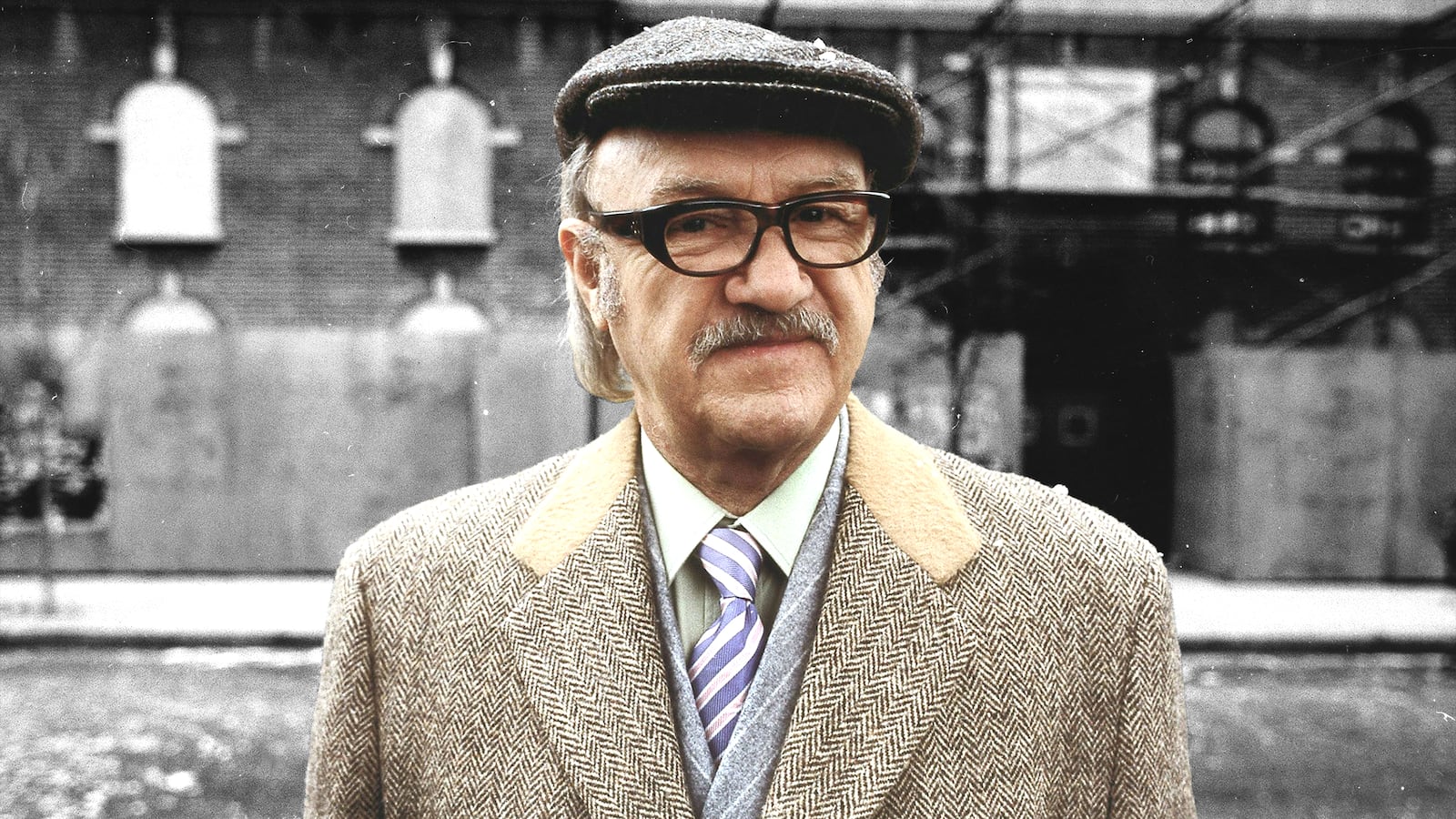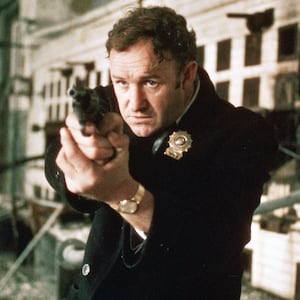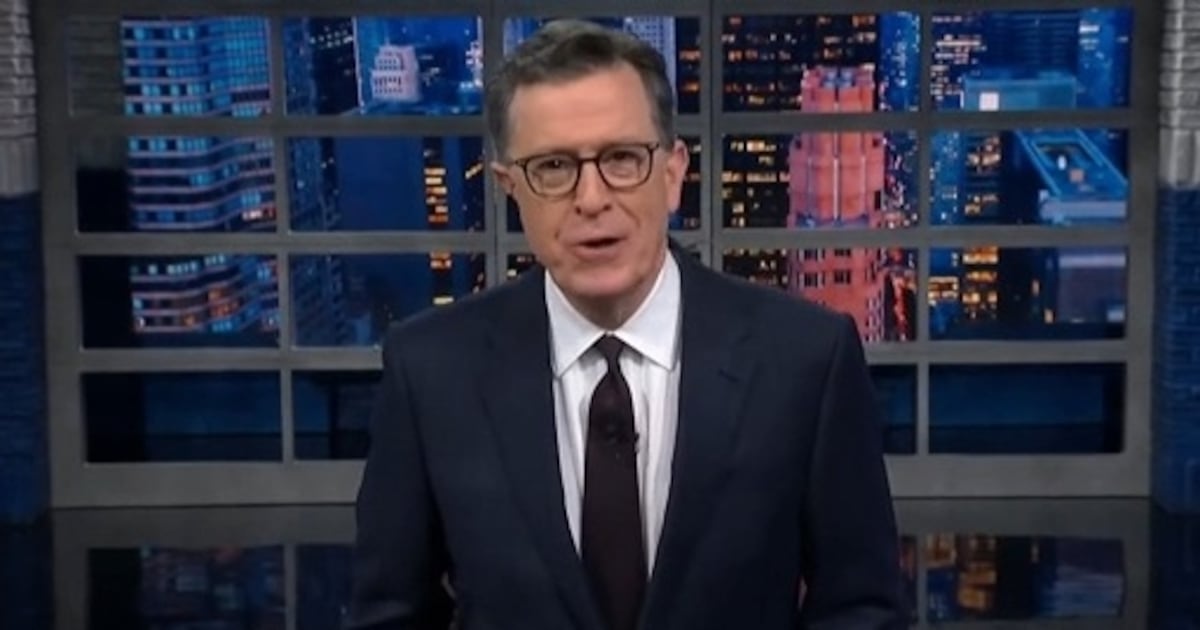Gene Hackman knew how to explode on screen, but his explosions were not like Jack Nicholson’s conniptions in Carnal Knowledge or The Last Detail. Hackman’s seemed the just response of a righteous man boiling over. His anger is beyond moral and taps into something more complicated in his characters. As the director Jean-Claude Tramont said, “Hackman is full of anger—that’s what gives his acting vibrancy—but he’s able to play against that anger.”
Hackman, who was found dead at 95 with his wife, Betsy Arakawa, 64, in their New Mexico mansion on Wednesday, had good reason to be angry. His old man had a temper. “He always went too far,” the actor said. “Laid it on pretty heavy.” His dad worked in newspaper presses and moved the family around to four states before they settled in Danville, Illinois.
They lived with Hackman’s maternal grandmother, a flinty old lady who didn’t think much of her grandson or his father. The 13-year-old Hackman was playing in the street one day when his dad rolled past in a car and waved to him. He was leaving the family without a word of goodbye. There was no melodramatic scene, only that wave and the power it carried. You can see it for yourself in the waves Hackman exchanges with Fernando Rey in The French Connection.

“It was so precise,” the actor recalled in an interview more than 60 years later. “Maybe that’s why I became an actor. I doubt I would have become so sensitive to human behavior if that hadn’t happened to me as a child.”
Hackman was furious at his father and at the kid brother he was left to look after. When he was 16 he lied about his age and joined the Marines. And when he was established as an actor, having earned a reputation as a pain in the ass to work with, he said, “Generally, I give directors a pretty tough time for [my father] having left me when I was 13. Make them pay, what the hell.”
He was a master at discomfort, the pained, apologetic smile, chin thrust forward as if his collar were too tight, drumming his fingers nervously on the knobs of his tape recorders. He called The Conversation “the pinnacle of my acting career in terms of character development.” When he reprised the role of Popeye Doyle in The French Connection II, he expanded the character, particularly in a tour-de-force sequence when Doyle detoxes from heroin addiction in a damp French jail cell.
“He will go back and visit some early pain that many of use would rather not touch,” said Arthur Penn, who directed Hackman in 1975’s Night Moves. “He’s one of the ones who are willing to plunge their arm into the fire as far as it can go.”
There were good roles that got away: He was fired by Mike Nichols from The Graduate, and turned down the Robert Duvall part in Apocalypse Now and the Donald Sutherland role in Ordinary People because the money wasn’t right. He was originally going to star in and direct The Silence of the Lambs.
The first time he retired from acting, in the late ’70s, it only lasted a few years. Hackman returned to the screen trimmer, suited to middle-aged roles. He was terrific as a man suffering a midlife crisis in the weirdo screwball comedy All Night Long, the stoic colonel in Uncommon Valor, and a journalist caught in a love triangle in Nicaragua in Under Fire.
“It could be that playing a man close to his own middle age in that neglected comic fantasy [All Night Long] brought him to a new, relaxed awareness,” wrote critic Michael Sragow. “Today few actors can match his gift for projecting intelligence and torment without falling back on broad strokes.”

For a generation of American boys, Hackman was the ultimate surrogate dad as the coach in Hoosiers, a bucket of popcorn covered in Velveeta that he grounded in reality and turned into something you can watch over and over without blushing too hard.
The theme of fathers and sons continued to play out for Hackman but now he was the paterfamilias—with Dennis Quaid in All Night Long, Henry Thomas in Misunderstood, Matt Dillon in Target, right up through 2001’s The Royal Tenenbaums, a Wes Anderson comedy in which the usually surefooted Hackman was droll but looked befuddled.
Behind the scenes on that film, which would end up being one of his last before he gave up acting for good in 2004, he was an “intimidating” father figure for the two actors playing his sons: Luke Wilson and Ben Stiller. Wilson recalled fumbling his lines in front of Hackman and receiving a “glance that shivered me to the bone,” adding, “needless to say, I nailed it on the next take.”
Stiller called working with Hackman a “dream come true” and remembered steeling himself to reveal how much his work in 1972’s Poseidon Adventure meant to him. When Stiller finally got up the nerve to share how that movie changed his life, Hackman barked back, “Oh yeah, money job,” and walked away. “My world was shattered,” Stiller said.
Aside from The Royal Tenenbaums, which won him a Golden Globe award and a new generation of millennial fans, most of his later movies were turkeys. Yet Hackman was still capable of surprising us. He didn’t relish the violent roles he often played and if he had one underrated quality it was that enduring knack for comedy. He never let his intelligence get in the way of a good role and played dumb without guile or condescension as a hapless movie producer in Get Shorty and a scoundrel politician in The Birdcage.
As these two dummies, Hackman was nimble and relaxed. All of the suppressed rage, all the hurt of that 13-year old kid evaporated, and the scary old bastard looked as content as a bulldog chasing butterflies.








